WY Police and Crime Commissioner outlines key objectives
Fri, 16 Aug 2013 13:13:00 BST
Mark Burns-Williamson welcomed to Applied Criminology Centre conference
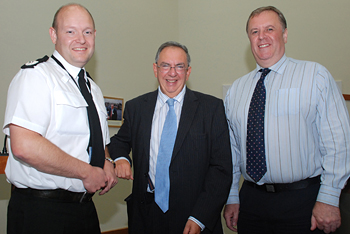 Pictured l-r: Assistant Chief Constable Craig Guildford, Professor Alex Hirschfield (Head of Applied Criminology Centre) alongside the Police and Crime Commissioner for West Yorkshire Mark Burns-Williamson
Pictured l-r: Assistant Chief Constable Craig Guildford, Professor Alex Hirschfield (Head of Applied Criminology Centre) alongside the Police and Crime Commissioner for West Yorkshire Mark Burns-Williamson
THE Police and Crime Commissioner for West Yorkshire outlined his key objectives and plans for the future at a special one day conference hosted by the University’s Applied Criminology Centre (ACC) on 27 June, 2013.
Mark Burns-Williamson was elected to the position of the County’s Police and Crime Commissioner in November last year. He has recently published his Police and Crime Plan for the five-year period to 2018 and the ACC’s conference provided the ideal platform to outline his vision for his period in office.
Mr Burns-Williamson stood as the Labour Party candidate in the Police and Crime Commissioner election having stepped down as Chair of the West Yorkshire Police Authority to enter the ballot.
Following a community consultation process, Mr Burns-Williamson told the invited delegates that three of his priorities, in response to the feedback he had received from the public, would be to reduce burglary, tackle hate crime and take a hard line with anti-social behaviour.
The Commissioner was welcomed to conference by the head of the ACC, Professor Alex Hirschfield, who was himself a former senior advisor to the Home Office and who currently sits on the Advisory Panel for Lord Stevens Commission on the Future of Policing.
Professor Hirschfield set the scene for the day by giving a presentation, drawing on his own experience, about the crucial role research can play in identifying what works in reducing crime. Members of the ACC’s research team then spoke about their research.
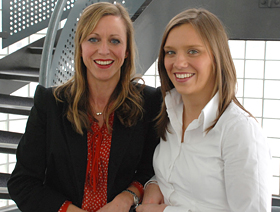 The ACC has worked extensively with the police forces, the Home Office, Ministry of Justice and community safety partnerships both in the UK and overseas and has earned an international reputation for its work in a number of fields. Investigating how residential housing developments can be designed to reduce opportunities for crime, such as burglary, is key area for the Applied Criminology Centre.
The ACC has worked extensively with the police forces, the Home Office, Ministry of Justice and community safety partnerships both in the UK and overseas and has earned an international reputation for its work in a number of fields. Investigating how residential housing developments can be designed to reduce opportunities for crime, such as burglary, is key area for the Applied Criminology Centre.
Researchers Dr Rachel Armitage and Leanne Monchuk have published extensively in this field. In 2009, they were commissioned by the Home Office to lead an ambitious collaborative research project. The project comprised a detailed review of some seventy policy, guidance and research documents, and in-depth scrutiny of over 6,000 properties across three police force areas.
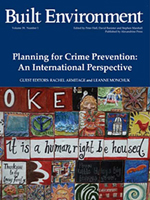 Recently, the pair jointly edited a special edition of the Built Environment journal on their research and were also asked to contribute to an Australian parliamentary inquiry into the prevention of crime through environmental design in the state of Victoria.
Recently, the pair jointly edited a special edition of the Built Environment journal on their research and were also asked to contribute to an Australian parliamentary inquiry into the prevention of crime through environmental design in the state of Victoria.
Kris Christmann co-authored research into the prevalence of hate crime, amongst others for the Youth Justice Board, specifically looking at why so few victims reported crimes against them.
Together with colleagues from the Centre, he has extended this research to investigate the causes behind religious and political violence at the same time looking at the success of national intervention programmes.
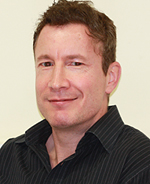 Violence, Disorder and the Night-time Economy was the title of ACC researcher Dr Andrew Newton’s presentation.
Violence, Disorder and the Night-time Economy was the title of ACC researcher Dr Andrew Newton’s presentation.
Dr Newton’s extensive experience of the subject, included research for the Home Office that was eventually used by the both the Alcohol Education and Research Council – now Alcohol Research UK and the Alberta Gaming and Liquor Commission in Canada. He is currently working closer to home with Kirklees Council Communities and Leisure services in Huddersfield to advise them as part of their Spotlight Review on the Night-Time Economy.
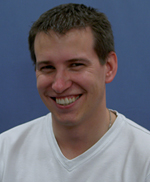 “We were delighted with the turn out for the conference,” said Professor Hirschfield, “which included a real cross-section of organisations from police, prison service, housing agencies, offender support groups, probation services, the fire service and local authorities. As well as general discussion, it also gave the ACC an opportunity to outline its work and present projects.
“We were delighted with the turn out for the conference,” said Professor Hirschfield, “which included a real cross-section of organisations from police, prison service, housing agencies, offender support groups, probation services, the fire service and local authorities. As well as general discussion, it also gave the ACC an opportunity to outline its work and present projects.
“We were particularly delighted to welcome Mark Burns-Williamson and that he used the conference to expand on his five-year strategic plan released recently.”







